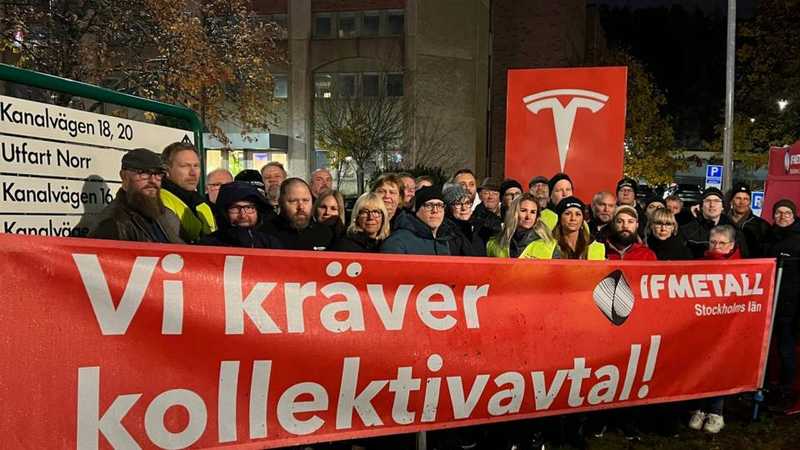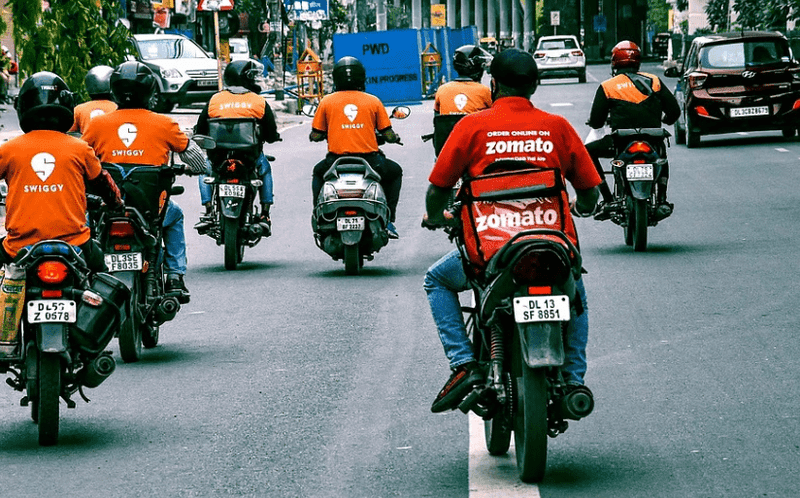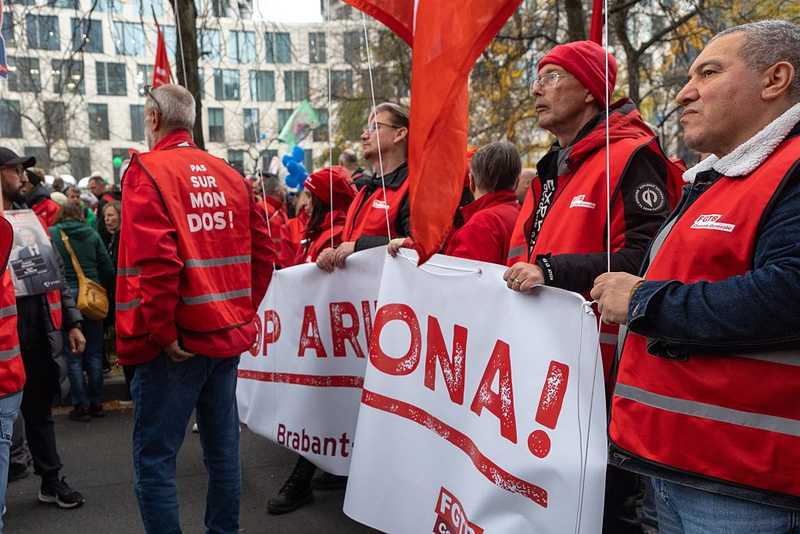
What began as a refusal by Tesla to enter into a collective bargaining agreement with roughly 120 Swedish mechanics has ballooned into the first strike in the company’s 20-year history, with workers in other sectors coming out in solidarity.
Musk – who was found guilty of violating labour law in America by tweeting that he’d remove employees’ stock options if they unionised – may have met his match in Sweden’s powerful union movement.
If Swedish workers can force Tesla to abandon its policy of refusing to sign collective agreements, it could open the door for unions organising against the automaker the world over.
While Tesla doesn’t manufacture its electric cars in Sweden, mechanics service the cars in workshops across the country. Since 2018 IF Metall – the trade union representing the mechanics – has been calling on the automaker to sign a collective bargaining agreement to cover its members. Tesla has refused to cooperate and on 27 October the union launched strike action.
In a statement, the Swedish Trade Union Confederation said: “In Sweden, we should not have American conditions. If we allow a giant company to do as they wish, more will follow.”
Over 90% of workers in Sweden are covered by collective bargaining agreements, with working conditions and wages not regulated by legislation, but rather by agreements between employers and unions. Excluded from the sector-wide standards set by the IF Metall’s motor industry agreement, IF Metall says Tesla employees earn lower wages, have poorer insurance cover, and worse pension contributions.
Other trade unions have rallied around IF Metall’s strike action, believing that Tesla’s actions could put the entire Swedish labour model in danger.
The Swedish Transport Workers’ Union launched a blockade on 7 November, refusing to load or unload Tesla cars at ports in Malmö, Södertälje, Gothenburg, and Trelleborg. On 17 November, the blockade expanded to a further 55 ports.
The same day, the Swedish Building Maintenance Workers’ Union, Fastighets, stopped cleaning Tesla showrooms. The union told Novara Media: “When IF Metal asked us to help them, we decided it’s important for them, for us and the whole trade union system in Sweden.
“If Tesla doesn’t sign a collective agreement, would Volvo, Mercedes or Kia respect the collective agreement?”
Cleaners and dock workers have been joined by the painters’ union, with 53 painting companies refusing to work on Tesla vehicles, and electricians’ union, who are refusing to repair Tesla chargers.
On 20 November, the postal workers’ union Seko announced plans to block the distribution, delivery and collection of shipments, letters, parcels, and pallets destined for Tesla workplaces.
“By refusing to comply with the rules of the game here in Sweden, Tesla is trying to gain a competitive advantage by giving workers worse wages and conditions than they would have had with a collective agreement. This is of course completely unacceptable,” Seko chairman Gabriella Lavecchia said in a statement.
Secondary action from postal workers has blocked the arrival of licence plates for new Tesla cars. Musk branded the postal workers’ blockage “insane” on X, and Tesla filed a lawsuit against the Swedish Transport Agency and postal service, calling the blockage “a discriminatory attack without any support in law.”
On Monday, an interim court judgement ruled that the Swedish transport agency had seven days to allow Tesla to collect the licence plates directly.
The director of the transport agency, Anna Berggrund, said: “It appears from the decision that our sign manufacturer has announced that it is prepared to provide the signs directly to Tesla, provided that the Swedish transport agency agrees to this.” The agency has not announced how it plans to respond.
“We note that Tesla has chosen to take the long route, starting legal proceedings” said IF Metall negotiation secretary Veli-Pekka Säikkälä. “There is a simple and quick way to solve this situation, and that is to sign a collective agreement. As soon as Tesla does that, the conflict ends.”
On 24 November, around 50 workers at Hydro Extrusions downed tools. The workers are the only supplier of a critical specialised Tesla component in Europe. Säikkälä said: “They deliver components to Tesla’s factory in Berlin, and if this causes disruption to them we hope to force them back to the negotiation table.”
Solidarity hasn’t just come from unions. Taxi Stockholm – one of Stockholm’s leading taxi companies – has paused new orders of Teslas for its fleet.
Moderate party leader and prime minister Ulf Kristersson told the press that he expected the conflict to be resolved, adding: “Swedish legislation is clear and Swedish tradition in the labour market is clear.”
Former prime minister Stefan Löfven, who also previously headed IF Metall, said on Facebook: “Shame on you Tesla, shame on you!” and called on customers not to purchase new cars until an agreement was reached.
Since the strike began, Tesla has been ferrying in workers to strike break, something that IF Metall’s secretary Veli-Pekka Säikkälä described as “transgressing all boundaries” and a throwback to the 1920s and 30s.
Swedish unions have a history with global corporations who try to import their hostile anti-union business practices, having successfully faced down notoriously anti-union McDonalds in the 1980s and Toys R Us in the 1990s. Like Tesla, the conflicts began when the US corporate giants refused to sign collective agreements, and escalated when workers in other industries began solidarity strikes.
However, “disruptive” tech companies like Tesla have sought to get around the system. This summer, Spotify pulled out of negotiations over a collective bargaining agreement, arguing that it did not “add any significant value” for employees, and Swedish fintech company Klarna only narrowly avoided strike action by heeding calls for a collective bargaining agreement.
So far, Amazon has been able to avoid the union question in Sweden. Only launching in the country in 2020, Amazon’s warehouse in Eskilstuna is operated by German logistics firm Kuehne Nagel, which is already covered by a collective bargaining agreement.
In Germany, where Tesla builds cars, the company is the only electronic vehicle manufacturer not covered by a collective bargaining agreement.
IG Metall, the German trade union representing Tesla workers, is affiliated to the Swedish IF Metall. The union told press that, while it could not comment on the current strike directly, it was following it “very closely and with solidarity for our colleagues in Sweden.”
In America, the United Auto Workers are also eyeing up Tesla, with president Shawn Fain calling unionising the company “doable.” In October, the union won record contracts at General Motors, Ford Motor, and Stellantis. “When we return to the bargaining table in 2028, it won’t just be with a Big Three, but with a Big Five or Big Six,” said Fain.
Swedish Tesla management told IF Metall that the decision to sign a collective agreement ultimately rests with the automaker’s American head office.
Tesla did not respond when contacted for a comment.
Polly Smythe is Novara Media’s labour movement correspondent.
Photo: IF Metall





